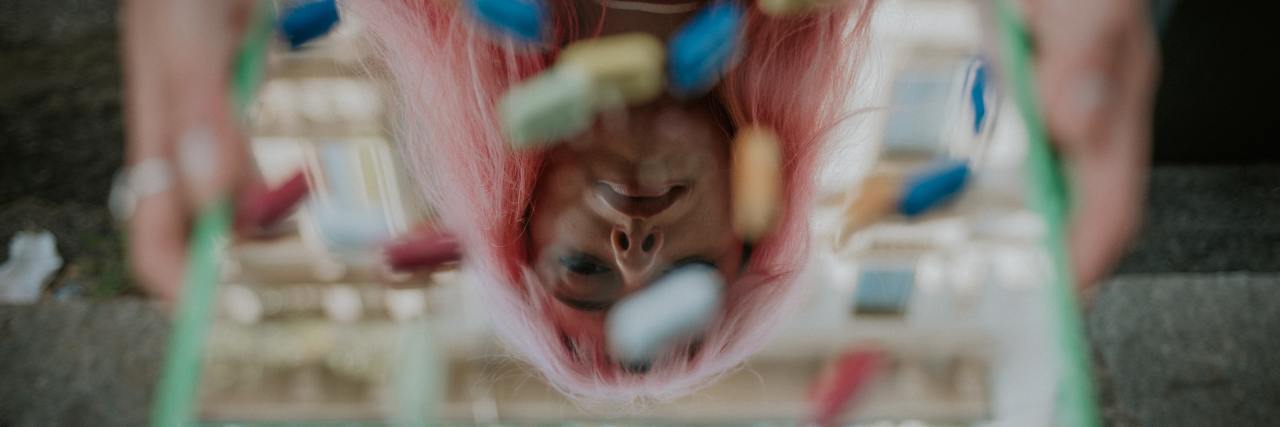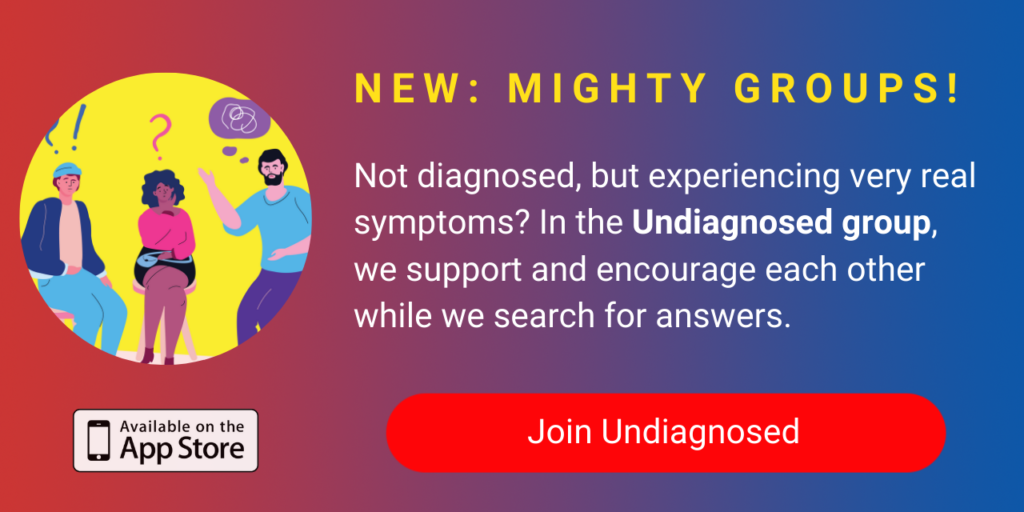Can I Still Be a Mental Health Advocate if I’m Undiagnosed?
I’ve been putting off writing this article for a week because it’s hard to reveal your insecurities online, but I think talking about this is important. I think it’s important for me to accept the complexity of my position as a mental health advocate with undiagnosed mental health issues, I think it’s important for you, my lovely readers, to understand where my work comes from, and more generally, I think it’s important to talk about diagnosis.
For a long time, I saw a diagnosis as the ultimate form of validation. Without an official mental illness, I was just some chump, struggling with life for no reason. If nothing was wrong with my brain, that meant something must be wrong with me.
Lately, I’ve been moving past this mindset, rearranging it and reconfiguring it into something fueled not by shame, but by my desire to heal. And that’s what I want to talk about today.
Why I’m Undiagnosed
Right now, I don’t technically have to classify myself as “undiagnosed.” I’ve received many diagnoses over the years that I could use as an identifier. First, it was bipolar disorder, then for one summer I was diagnosed with obsessive-compulsive disorder (OCD), after that it was depression and anxiety, and I think one therapist wanted to diagnose me with borderline personality disorder (BPD), though I don’t think she ever did.
And there are countless other conditions I’ve tried to diagnose myself with over the years, from attention-deficit/hyperactivity disorder (ADHD) to autism. I could hold onto any one of these disorders, or all of them, but I learned the hard way that forcing a diagnosis only causes me more pain and frustration.
When I was in college, I had a mental breakdown and started doing obsessive research to find out what was wrong with me. Based on the hideous, self-destructive energy I felt and a history of emotional dysregulation, I decided I had bipolar disorder. I went to the school counselor, got diagnosed and then never stopped doubting my diagnosis.
For years, I was tormented in a liminal space. I could neither accept or reject my bipolar diagnosis. Many therapists have told me that if I have bipolar, “it’s an unusual form.” My manias were beyond mild, my depressions were intense but short-lived, and in general, it just didn’t fit.
But like Cinderella’s step-sisters in the original fairy tale, I was willing to chop off my own toes to make this damn diagnosis fit.
It took my years to realize that clinging to this diagnosis as a source of validation was doing me more harm than good. But with the help of some really amazing therapy, I did finally see the harm it was doing me, and with no small amount of grief, I let it go.
Immediately, I wanted a new diagnosis to replace it. I needed an explanation for why I was like this that didn’t put the blame on me and who I was as a person. I needed some chemical imbalance or past trauma. And I tried, but after the bipolar debacle, my heart just wasn’t in it anymore. I was still just as obsessed as before, but I was too scared to really commit to any one diagnosis.
In some ways, that’s why I have undiagnosed mental health issues today. I was wrong about the bipolar, and now I’m so scared I’ll be wrong again, that it’s safer to stay undiagnosed.
But my lack of a mental health diagnosis isn’t just borne of fear. It’s also part of my healing process.
I Don’t Need a Diagnosis to Start Healing
Thanks to several amazing therapists in the last few years (darn insurance changes), I have realized that being undiagnosed doesn’t inherently invalidate my mental health struggles.
Regardless of what the label is called, I still struggle with intense emotions, short but deep depressions, lack of motivation, past trauma, high sensitivity, identity issues, self-loathing and fears about being truly seen.
Those problems are not less scary or frustrating or valid just because I don’t have a neat label to explain them.
Nothing quite feels right, and there’s probably a lot of reasons for that, but I refuse to chop off my toes again to make something fit. And that’s huge for me.
Choosing to stay undiagnosed for now means that I am honoring my overall selfhood over one single part of my identity. Being someone with mental illness used to be the core feature that defined me, but now, I’m able to prioritize my healing over my identity. I’m able to see my symptoms, and want to understand why I experience them, and be patient enough to wait for the answer to arrive instead of forcing something out of desperation.
Still, even though I’m making the choice to stay undiagnosed in order to focus on healing instead of labels, part of me is still desperate for answers. I’m still scared of being inherently broken, and I’m scared about how I can be a mental health advocate without a real diagnosis.
Bringing My Own Flavor to Mental Health Advocacy
On hard days, I feel like my lack of a solid diagnosis makes me unqualified to advocate for anyone. Who am I supposed to be speaking to or for? I can’t totally identify with anyone, which brings me to another fear: where do I belong? Who is my “tribe?”
Am I all alone, the only person with this unique combination of symptoms and dysfunctions?
But on good days, I know I can’t be alone. I know that so many people are out there, wondering the same thing. Many of them will find a diagnosis that fits them, and they will feel understood and included, but some of them, no small number of people, will be like me. Never quite fitting anywhere. Struggling, and trying to accept that there may not be a clear reason why.
Wondering if they’re all alone.
And that’s why I’m a mental health advocate, even though I feel a little out of place here without a diagnosis. I’m here for the other undiagnosed people. I’m here for people who can’t put a finger on what’s wrong, but don’t want to wait for a label to get started on their healing journey.
I’m here to be the person I needed several years ago. I’m here to be the person you need now.
So if you’re reading this, welcome to a space where it’s OK to be undiagnosed. Welcome to a space where validation and vulnerability are more important than insurance codes and labels. Welcome to your “tribe.”
To make sure you don’t miss out on any healing resources, take a moment to subscribe to my mental health blog, Healing Unscripted. You’ll get weekly blog post updates so you stay up to date, plus the Validation Station email newsletter, which is basically a big virtual hug.
A version of this article was previously published on the author’s blog.
Photo by Matteo Badini on Unsplash


